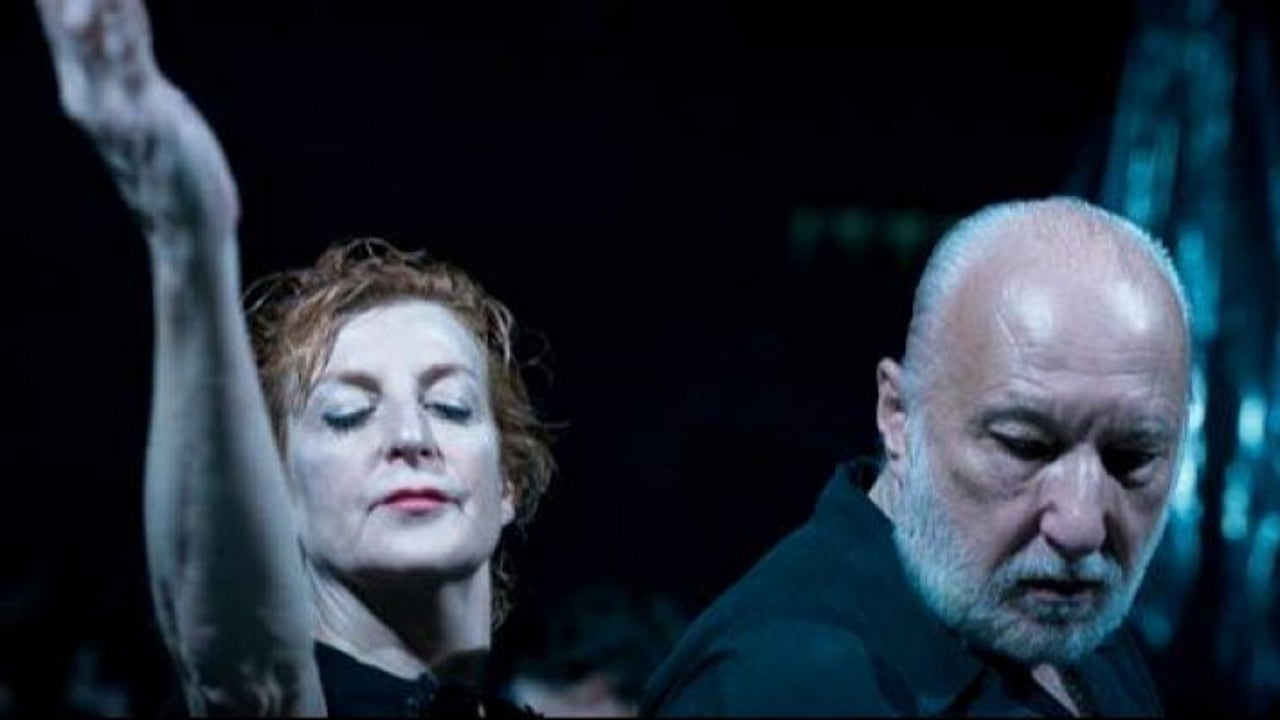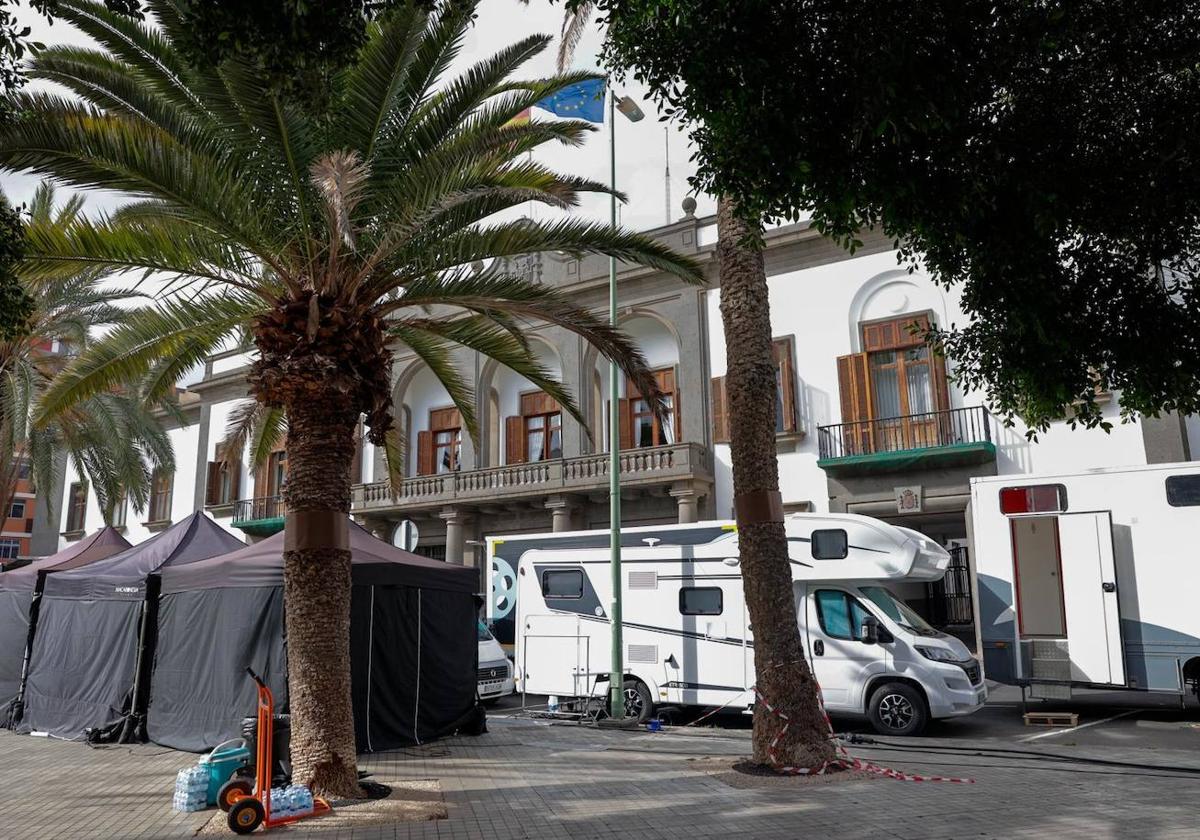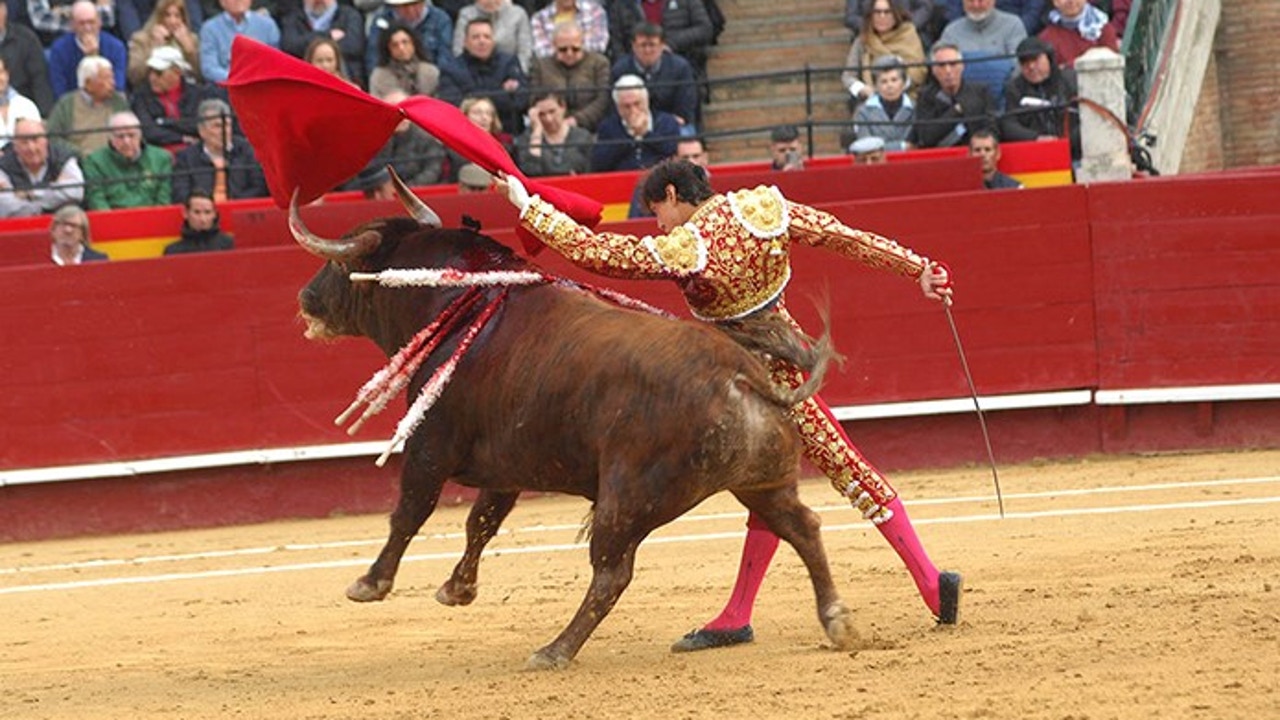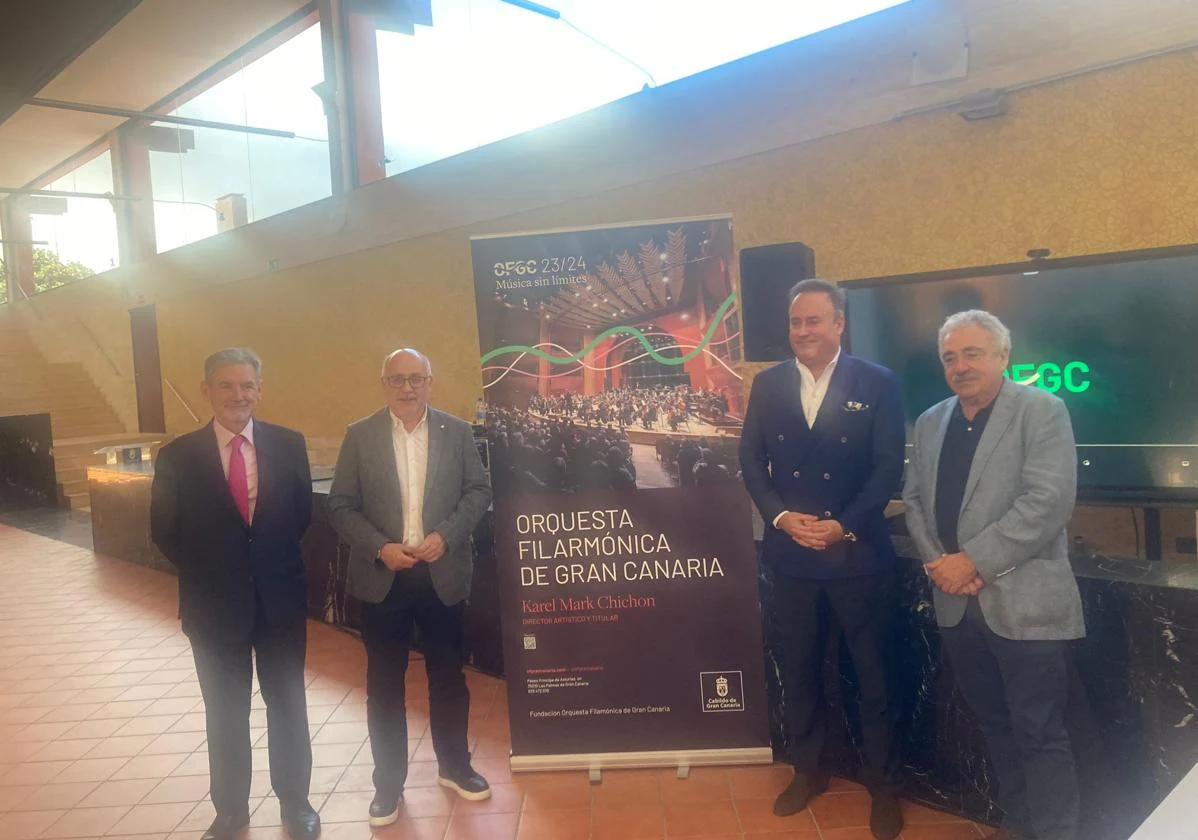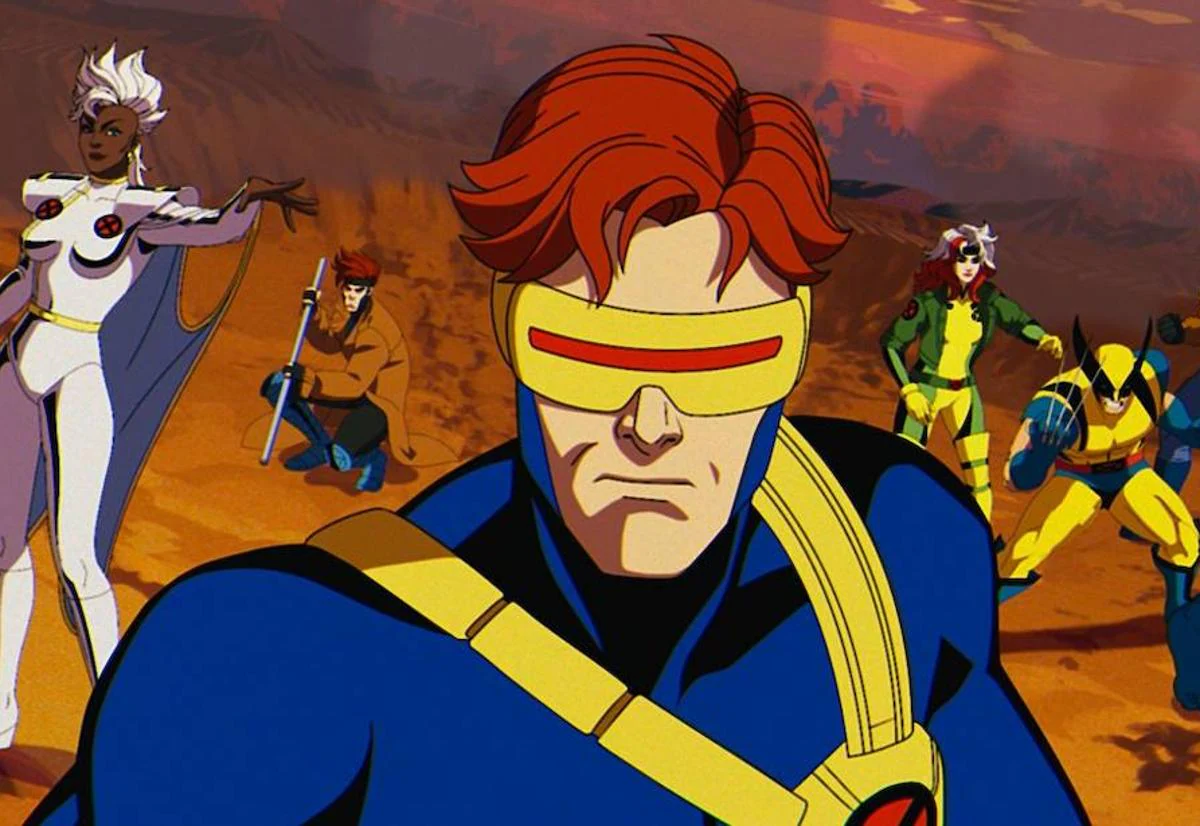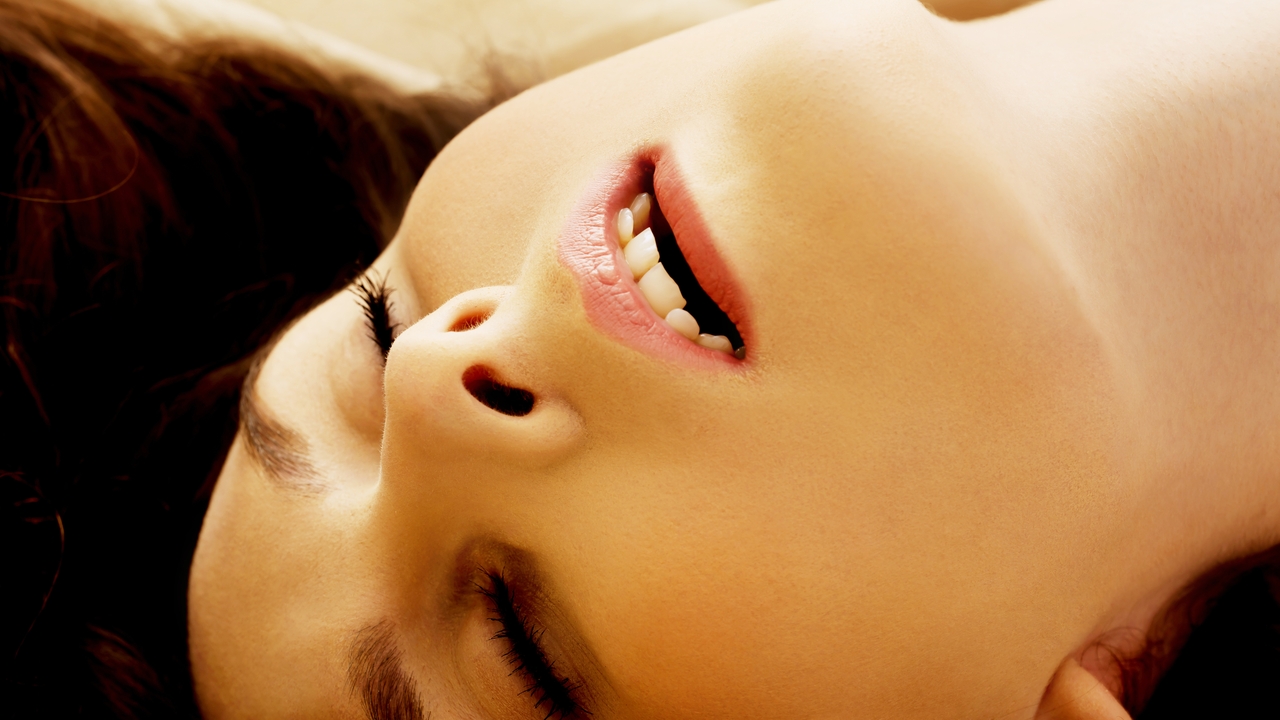Cariño: "Drugs are not elegant but you have to talk about them"

The story of the founding of Cariño has already become part of its hallmark. María Talaverano and Paola Rivero met through the Wapa dating app. The spark did not come, but the musical connection did. They were still missing a third leg and they discovered it at an after party, after a concert by Alicia Ros with another group. Together they launched Movidas in 2018 and things got out of hand, because they had "no intention of blowing it up."
They have just presented CARIÑO, their second album, much more complete and mature than the previous one, although with the same romantic and festival essence. Their music sounds like the Spanish technopop of the 90s, although the composers are between 26 and 28 years old. But the element that differentiates them is their lyrics and that "sad and horny" aura at the same time, as they describe. As soon as they sing to their girlfriends, ex-partners and crushes in if you want, a shitty year or ... what I love you, as they reflect on drug use and the well of addictions in I don't agree.
They do not hide that the pandemic has been hard for their business and for their mental health, but neither have they come out of it reinforced, signing with Universal Music as well as with their lifelong label (Sonido Muchacho) and appearing in half of the country festivals. In fact, not only in Spain, since they have premiered in a big way with the quintessential musical event in the US.
You just got back from the Coachella festival. Apart from Rosalía, few Spanish artists have had the opportunity to be part of the poster. How was the experience?
Alicia Ros: It's been a lot of fun. It's very horizontal, everyone shares the backstage area and we were even at the same table as Jared Leto. It was two weekends and on the second more people came. The first was very influencer, everyone was very painted.
María Talaverano: In the second one too, but there were more normal people. I fulfilled my dream of perrear watching Karol G.
When did this opportunity arise and what does this festival have to be considered one of the largest in the world?
A: It came up three years ago while we were at another festival. We received an email from René in 2019, who is a boy who signs bands, he had heard us and wanted to take us. But as he stretched out over the years, we didn't fully believe it until we were on the plane flying to Los Angeles. It is very special because of all the Coachella imagery and because you can see bands that you would never see, but I prefer other smaller festivals.
M: The first weekend is very much aimed at celebrities, it's the one with Timothee Chalamet, Jared Leto or Leonardo DiCaprio. At our concert the second weekend there were more than three times as many people.
And how is the panorama of festivals presented after two years?
M: Let's go to everything. If the bracelets were still worn, they would reach our elbow or armpit [ríe].
A: We are very happy to finally see people's faces. That everyone was sitting with a mask was depressing. How can I guess he's liking it? Why does he move his foot a little? It was weird on both sides.
Music has been one of the sectors hardest hit by the pandemic. Did it help you to have an album to work on so you don't lose perspective?
M: I personally have had depression and now I'm in luxury.
A: Totally. Otherwise it would have been to wait for a couple of poor concerts. This was what kept the project alive. We have also had moments of disappointment or of thinking that it did not make sense. It has been a roller coaster.
There are many things that link the new album with the previous one, among them the theme: love. What have you noticed the evolution?
A: The first one was very fast, we knew very little about how to build a song. In this we are more mature and more professional.
M: We are the same disturbed people, but our evolution is noticeable. On an instrumental level it has many more layers. But I'm bored of writing about love. I want to be more empowered because I always write from admiration and I'm tired of being that bitch.
A: I write from anger. But it is that I only get to write when I am most pissed off or most in love.
Talking about love. The story is always mentioned that you met in a dating app for girls and that with topics like Bisexual you have become an LGTB reference. Have you ever been stigmatized?
A: I think so. But just like as a group of women. I'm straight, but I think there are people who have taken advantage of the fact that they [María y Paola] are LGBT and that you have used it in some way.
M: When we went to La Resistencia, one of them said: "Do they have to say they're lesbians all the time?" I live it as a pride, but at no time have we thought that we were going to make a claim. We are lesbians and we go with that ahead. We write about what we live and feel: I do write lyrics for women and that's why labels come out. It has a vindictive nuance because it helps visibility and we will never hide it.
For the first time in the urban mainstream, lyrics by women directed at other women are being heard, such as Ptazeta, Tokischa, Lola Indigo or Karol G. Why do you think this genre has only been open to lesbian references?
M: I think it happens more in urban areas because they sexualize it. I see good that it is done when it is real and pure, as in the case of Ptazeta, and not to sell or monetize it. Now many ragpickers give each other spikes on social networks and it's like: arg. I also don't like that Karol G and Mariah kiss in the Makinon video clip. They are not lesbians, but that sells.
A: Sexualizing women in urban areas is an easy step, because it is already done. It doesn't matter if a man or a woman sings it.
This album comes out in collaboration with Universal, while the previous one was published only with the independent label Sonido Muchacho. Have you noticed an increase in recording interests?
M: They have never told us anything. A red line would be that we are censored or that we are creatively delimited. What they can't do is tell us what to write about or what to sing about. They're supposed to love us for who we are, they shouldn't change us. For the rest, they are just advantages because we have more resources and more money.
We recently learned that some scenes of real breasts had been recorded as a claim in the video clip of Ay Mama, by Rigoberta Bandini, which were never included. Do you think that censorship, unfortunately, is independent of record labels?
A: Yes. There are general boundaries of society, business and capitalism. And also self-censorship. I have self-censored things mainly out of shame, because we didn't want to talk about sex, drugs...
M: I'm not ashamed anymore [ríe].
In fact, you have revealed that the single I don't agree deals in a veiled way with addictions and depression.
M: In our imaginary is the fucked up drug addict or nothing. The middle point is invisible, when it is what almost everyone does, at least among the young people around us. It is important to talk about it to know how to take care of yourself and how it affects you. You don't have to live on the street to be an addict or need help. And neither the State nor the Health are giving it.
A: That's what it is. They become a problem at that intermediate point and since they are not talked about or made visible, they lead to serious problems. We composed I don't agree because you have to talk about them, although not explicitly because it wouldn't be elegant and drugs aren't elegant.
Near the end of the interview, the third member of Cariño, Paola Rivero, joins in, recognizing without any problem that she has just arrived from the psychologist. The pandemic, as her colleagues admit, has been a time to rethink things: "At first it was screwed up and I was crazy, but in the long run I appreciate the break because we had accumulated a time of a lot of work and many things".
The Canary Islander is the architect of most of the production arrangements for the latest album. She defines herself, along with María and Alicia, as the Powerpuff Girls, because they coincide in those generational desires and are inspired by the same sources, but at the same time, each one imprints a personality and a different touch on the project.
You have thrown yourself into writing a reggaeton song, Bonus trap, which breaks with the rhythm of the rest of the album. There is still a lot of condescension towards the genre, especially from others such as pop or rock. How do you perceive it?
M: Paola and I consume it a lot. Before there was a lot of condescension. In fact, I didn't listen to any reggaeton and it seemed like garbage to me, and now it's what I listen to the most. It has been opened to everyone. It has also become more pop, like what Bad Bunny does.
Paola: Our song has the beat, but it's more frikitón, because the roots of reggaeton come from where they come from. And we included it because in quarantine we were bored and we composed it for audio notes. It's a bonus because it gets away from the pop rock of the rest of the album.
2022 is being the year of the old normality and of the strong releases that were in the fridge. Without going any further, you are at all the festivals and you have signed the collaboration with a major label. Is recovery starting to show?
Q: We can't complain. It has motivated me a lot to see how Rosalía's album has been received, when it was such a different project and in which she experiments with a lot of new things. In our case we have also had more time to experiment with sounds and I hope people appreciate that.
A: I think the album is going to go well, we have a good hunch.

